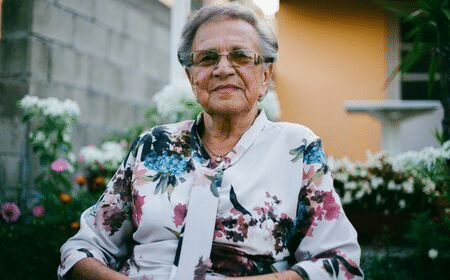We’re Here To Help.
Guardianship
Home > Practice Areas > Guardianship
If you are looking to be appointed as the legal guardian of an elderly person or person with a disability who is no longer able to care for himself or herself, Commonwealth Elder Law, PLLC can help.
Let’s take a closer look at the process and why someone would want to pursue guardianship, or as it is also known conservatorship.
What is Guardianship?
It is a legal relationship that is created when a court appoints an individual to care for a disabled person. As the appointed guardian you will have certain duties and responsibilities that you must carry out for that elderly person.
The most common reason for pursuing a guardianship is because the person is no longer able to care for himself or herself due to such things as an illness or medication requirements or hygiene issues or financial concerns or something similar.
Here’s How the Guardianship Process Works in Kentucky
There are three basic steps:
- Filing of a Petition
- An Evaluation
- A Hearing

The Petition is filed in the District Court of the county where the Respondent lives. The County Attorney represents the state of Kentucky. If the Petitioner (the interested family member or other person) wishes to be represented at the hearing, they must have a separate attorney.
After the filing of the petition, a three-member team consisting of a physician, psychologist and social worker is selected to evaluate the senior’s condition and report to the court.
After the team reports to the court, a hearing is held before a judge or a jury. The judge or jury then decides if a guardian should be appointed for the senior.
By the way, the state of Kentucky defines guardianship as “a legal relationship between a court-appointed adult who assumes the role of guardian for a ward. A ward is a person who has been declared legally disabled by the court and is no longer able to care for his or her personal and/or financial needs.”
The state goes on to say that a guardian may be a friend or family member who is willing to care for the disabled individual and if there is no one willing to care for a disabled person, the court will appoint the Cabinet for Health and Family Services as the state guardian.
The Petition is filed in the District Court of the county where the Respondent lives. The County Attorney represents the state of Kentucky. If the Petitioner (the interested family member or other person) wishes to be represented at the hearing, they must have a separate attorney.
After the filing of the petition, a three-member team consisting of a physician, psychologist and social worker is selected to evaluate the senior’s condition and report to the court.
After the team reports to the court, a hearing is held before a judge or a jury. The judge or jury then decides if a guardian should be appointed for the senior.
By the way, the state of Kentucky defines guardianship as “a legal relationship between a court-appointed adult who assumes the role of guardian for a ward. A ward is a person who has been declared legally disabled by the court and is no longer able to care for his or her personal and/or financial needs.”
The state goes on to say that a guardian may be a friend or family member who is willing to care for the disabled individual and if there is no one willing to care for a disabled person, the court will appoint the Cabinet for Health and Family Services as the state guardian.
As outlined by the Kentucky Cabinet for Health and Family services there are five types of guardianships.
The types are:
- Full Guardianship/Full Conservator – In this category the Cabinet is responsible for both the personal and financial needs of the ward. A court has found the ward fully disabled and all personal and financial rights are removed except the right to vote. The judge decides whether or not a ward retains the right to vote.
- Personal Guardian – A court finds the ward fully disabled in his/her personal affairs and appoints a personal guardian who is responsible for only personal affairs of the ward.
- Conservator – A court finds the ward fully disabled in managing his/her financial affairs and appoints a conservator who is responsible for financial or fiduciary affairs of the ward.
- Limited Guardian – A limited guardian may be appointed if the disabled person is declared partially disabled and can manage some personal needs but may need assistance with others. In this case, the court will also decide which civil rights the person can retain and which are given to the guardian. These may include the right to vote, the right to drive a car, the right to make medical decisions and the right to determine where to live.
- Limited Conservator – A limited conservator may be appointed if the disabled person only needs help with managing some financial or fiduciary affairs. In this case, the court will also decide which civil rights the person can retain and which are given to the conservator. These may include the right to sell property and the right to sign legal documents such as checks, marriage licenses or wills.
Is Guardianship the Best Choice?
Because guardianships involve a loss of civil rights for the disabled person the process can become long and drawn out and also expensive. For example, the disabled person could lose the right to manage his or her finances, to choose where they live or to choose who their caretaker will be – because of the seriousness of these things a trial is required.
Also, if there is any opposition to a proposed guardianship it can result in the process becoming even longer and more expensive. The whole thing could also become emotionally taxing as well.
One thing is for sure, if you’re considering a guardianship for yourself or for a loved one, or if you’re thinking about serving as a guardian, you should consult with an attorney who Focuses on elder law.
To learn more about guardianship and/or the alternatives listed above, click here to schedule a consultation.
Other Practice Areas
Recognized Memberships:



Contact to Discuss Your Legal Needs
Our firm offers comprehensive elder law services, including estate planning and probate. To schedule an appointment or to learn more about our firm, call us at 859-780-5748, or send us an email.

Sitemap | Privacy Policy
© 2020 campbellandsmithlaw.com.
All Rights Reserved.

Contact Us To Learn How We Can Help Your Family








